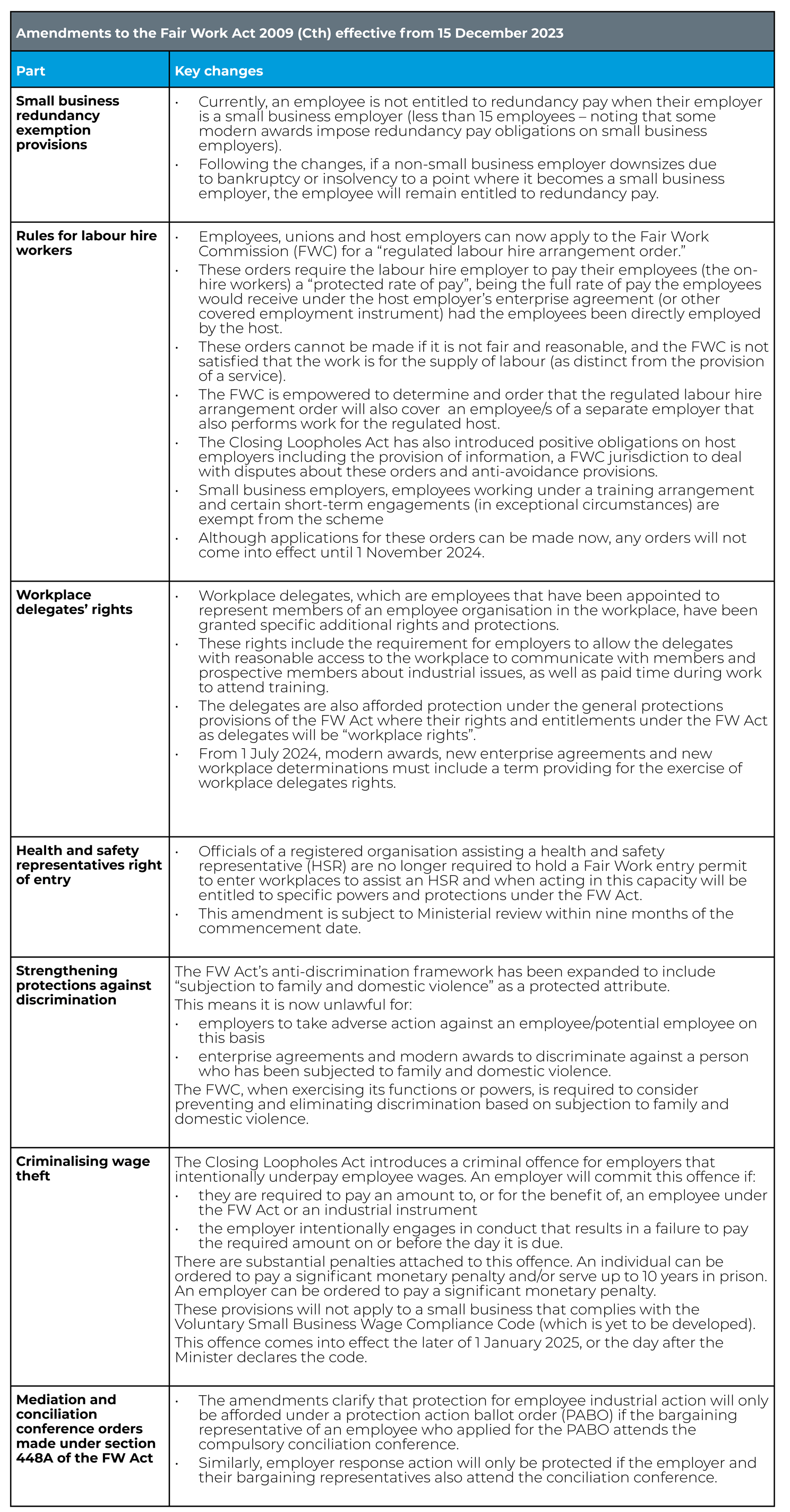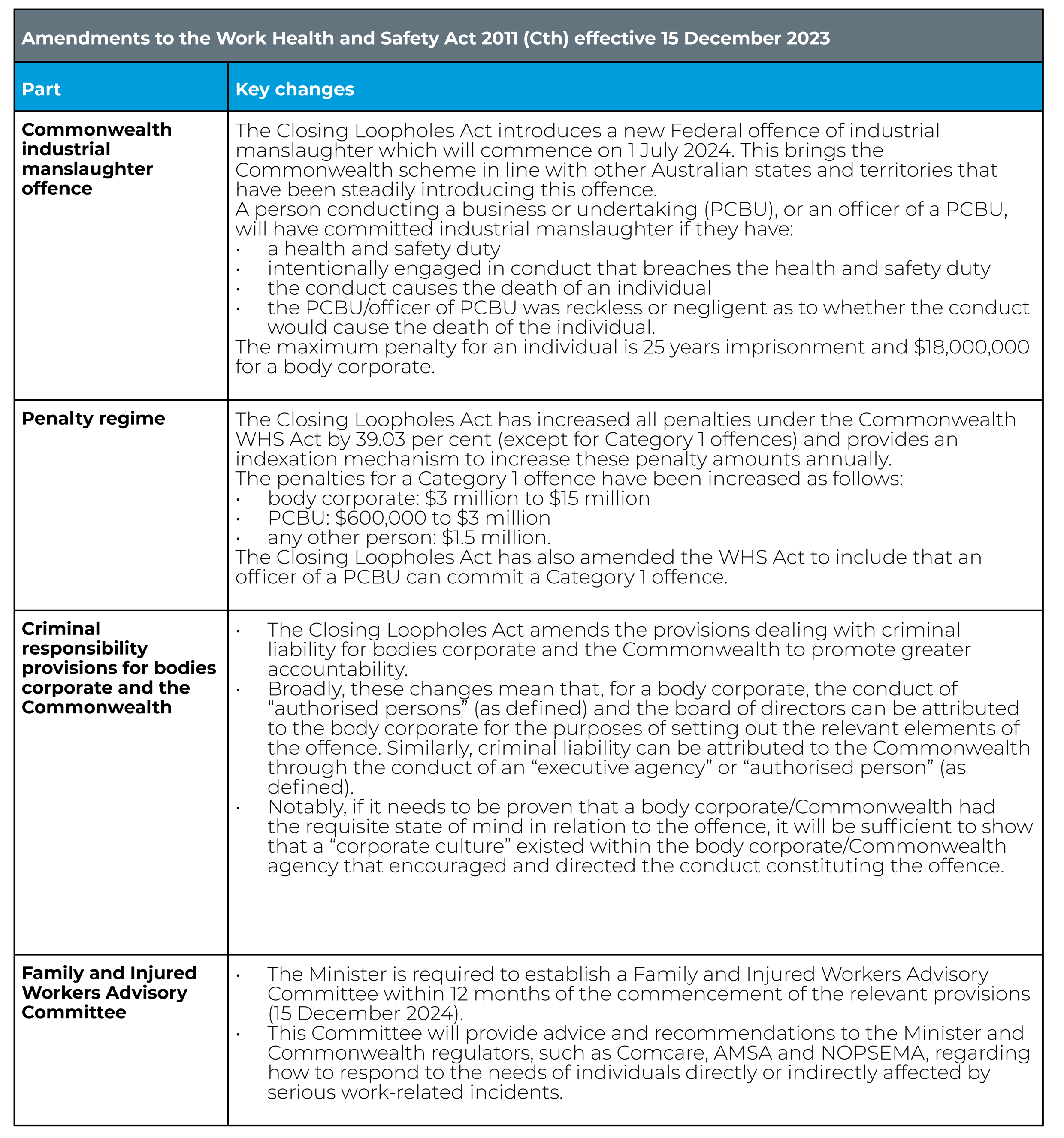07 February 2024
4 min read
Published by:

[Update on 28 February 2024: The Fair Work Legislation Amendment (Closing Loopholes No. 2) Bill 2023 received Royal Assent on 26 February 2024. References to this Bill now refer to the Act and most of the planned changes will commence this year.]
In 2023, Australian employers experienced the most substantial changes in a decade to the industrial landscape. These changes were far reaching, from the Fair Work Act 2009 (Cth) (FW Act) and Respect@Work reforms, to work health and safety laws. Not only did the changes introduce new rights and protections, they also introduced new restrictions on forms of work and compliance obligations forcing the need for businesses to consider their workforce strategy.
In the latter half of 2023, the Federal Government introduced further changes contained in the Fair Work Amendment (Closing Loopholes) Bill 2023.
Some of the changes were referred to a Senate Committee, with its report tabled earlier this month. However, on 7 December 2023, the Bill was divided and some components were passed in the Federal Parliament and received Royal Assent on 14 December 2023. Those changes became the Fair Work Amendment (Closing Loopholes) Act 2023 (Closing Loopholes Act).
The remaining components of the Bill became the Fair Work Legislation Amendment (Closing Loopholes No. 2) Bill 2023 (Closing Loopholes No. 2 Bill). The Closing Loopholes No.2 Bill passed the Senate on 8 February 2024 and is now set to return to the House of Representatives.
In this article, we provide a high-level summary on the key changes to workplace relations and safety laws arising from the Closing Loopholes Act, as well as introduce a summary of the key legislative changes under the Closing Loopholes No. 2 Bill.


The changes under the Closing Loopholes Act mark just the beginning of what is to be a year full of employment law change. While the changes under the Act are substantial, the more controversial and complex parts of the Closing Loopholes reform agenda have been transferred to the Closing Loopholes Bill No.2, which is still to be debated by the Senate in early 2024.
Business leaders are well advised to consider the impact of these proposed changes on their organisational strategy and workforce matrix. The implications are significant in the following areas:
We will continue to provide updates on the substance of the 2023 and 2024 changes. If you have any questions about any of the changes that have passed or are upcoming, please reach out to a member of our national Workplace Relations & Safety team below.
Disclaimer
The information in this publication is of a general nature and is not intended to address the circumstances of any particular individual or entity. Although we endeavour to provide accurate and timely information, we do not guarantee that the information in this newsletter is accurate at the date it is received or that it will continue to be accurate in the future.
Published by: